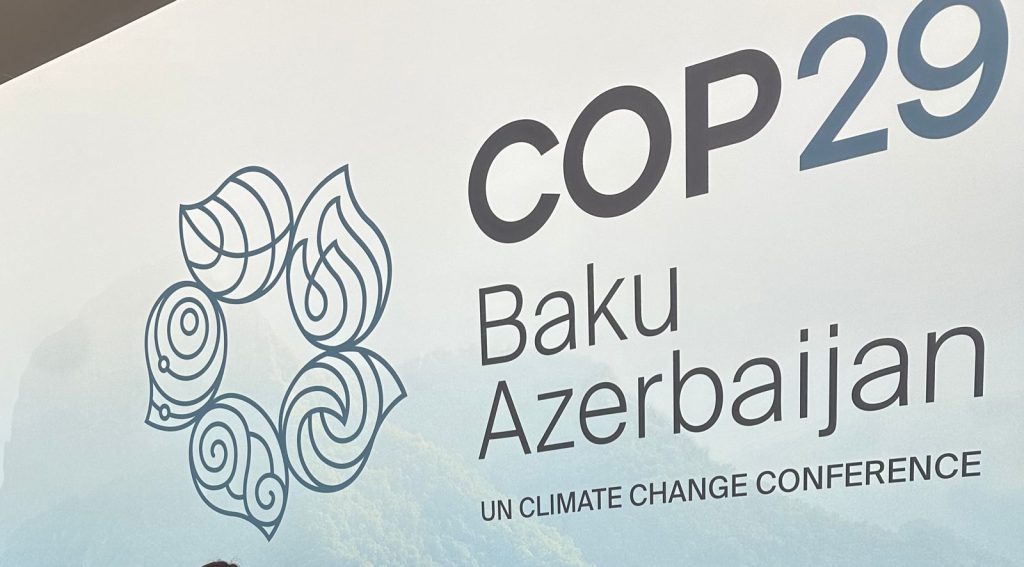A Significant Gathering in Baku
In the early hours of November 24, the 29th Conference of the Parties (COP29) to the United Nations Framework Convention on Climate Change concluded in Baku, Azerbaijan, after an extension of over 30 hours. The conference, which was initially scheduled to end the previous Friday, became a vital platform for nearly 200 nations to come together and negotiate a new collective quantifiable target for climate financing, known as the National Climate Quantifiable Goal (NCQG), and discussions surrounding Article 6 of the Paris Agreement regarding international carbon market mechanisms.
The Green Funding Mandate
At the heart of the agreements reached is a commitment from developed countries to provide at least $300 billion annually to developing nations. This funding is aimed at assisting these nations in combating natural disasters, transitioning energy structures, and minimizing the reliance on fossil fuels while moving toward greener energy sources. Climate change represents a universal challenge that humanity confronts, and climate financing serves as a crucial pillar for implementing climate actions, achieving emission reduction targets, and adapting to unavoidable changes.
A Groundbreaking Pact
The negotiations were grueling, yet they bore fruit. By the end of the conference, the delegates determined climate funding targets that extend beyond 2025, setting a minimum annual funding goal of $300 billion from developed to developing countries by 2035, along with a broader climate financing target of at least $1.3 trillion annually. This sets a vital precedent for developing nations as they prepare to present their new Nationally Determined Contributions (NDCs) in the coming year.

The Launch of the Global Carbon Market
A particularly noteworthy achievement of COP29 was the long-anticipated approval of Article 6, Paragraph 4 of the Paris Agreement, allowing for the official start of a global carbon market. This mechanism enables countries with high carbon emissions to purchase credits from those with lower emissions, essentially funding reduction projects in developing countries. However, this market has faced numerous criticisms and challenges, including a lack of transparency in credit allocation, ensuring the integrity of emission reduction projects, and managing the complexities of cross-border credit transfers.
Global Commitment to Action
COP29 also facilitated the establishment of a comprehensive work plan for mitigating climate change and global adaptation goals, reinforcing the momentum toward a sustainable, low-carbon transition worldwide. It is imperative that developed nations uphold their moral responsibility to provide financial support to developing countries. This obligation is not merely ethical but also a requirement under the Paris Agreement and the UN Framework Convention on Climate Change.
Acknowledging Historical Responsibility
The agreements reached at COP29 reflect an acknowledgment of historical responsibilities linked to climate change, overwhelmingly attributed to the high levels of emissions from developed nations over the past century. Consequently, these nations are required to take responsibility and offer financial assistance to developing ones. As explicitly stated in the Paris Agreement, developed countries are obligated to provide funding for climate initiatives, with other countries encouraged to contribute as they are able. Following contentious debates, developed nations ultimately consented to increase their funding commitments, arriving at the goal of $300 billion annually by 2035, alongside a broader climate financing target of $1.3 trillion per year. While this figure may fall short of expectations, it represents crucial progress.
Dissatisfaction Among Some Nations
However, not all nations are satisfied with these commitments. Research indicates that poorer countries require trillions of dollars to effectively combat the adverse impacts of climate change, including rising sea levels, storms, droughts, and floods. The agreed target of $300 billion annually from wealthy nations is inadequate compared to the $1.3 trillion sought by developing nations during prior negotiations over the last three years. The discrepancy between these figures highlights a profound gap in meeting the actual financial needs of developing countries to combat climate change.
For instance, representatives from India expressed profound discontent with the final funding agreements, arguing that the proposed amounts are insufficient for implementing effective climate actions or facilitating a transition to low-carbon economies. India emphasized that addressing climate change requires a collective global effort, with developed nations needing to shoulder greater responsibility and provide ample financial and technological support to their developing counterparts.
Voicing Concerns for Greater Ambition
In response to the outcomes of the conference, United Nations Secretary-General António Guterres acknowledged the importance of achieving agreement to maintain global temperature increases below 1.5 degrees Celsius. However, he expressed his hope that the parties would have demonstrated greater ambition in terms of funding and emission reductions. Guterres commended the efforts made by representatives in finding common ground, asserting that “the agreement must be fully implemented, commitments must swiftly translate into funding, and all nations must work together to ensure the achievement of new targets.”
































